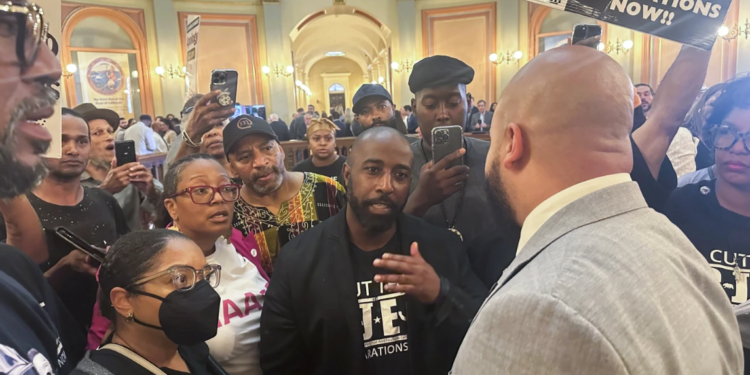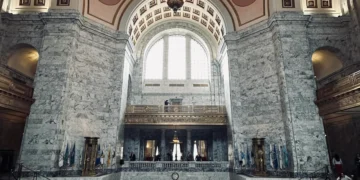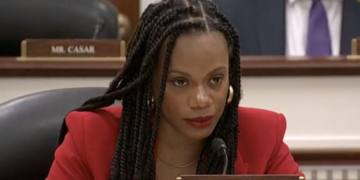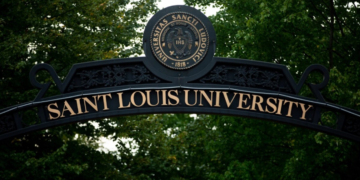Sep 3, 2024 Story by: Editor
SACRAMENTO, Calif. — Three days after the California Legislative Black Caucus blocked two key reparations proposals from being voted on in the Assembly, the head of the state’s Reparations Task Force has criticized the caucus’s actions.
“I think what happened on Saturday was unconscionable,” said Kamilah Moore, chair of the California Reparations Task Force, which spent two years examining the impacts of slavery and racial discrimination on African Americans in California.
KCRA 3 also reached out to California Secretary of State Shirley Weber, the author of the state law that established the task force. However, she declined to comment on the situation.
On the final night of the legislative session, the Black Caucus announced that it would not present two reparations-related bills for a final vote in the Assembly. These included SB 1403, which would create a state reparations agency, and SB 1331, which would establish a reparations fund.
Tensions escalated within the caucus late Saturday night, with the group divided over the last-minute decision. State Senator Steven Bradford, who authored the bills, accused the caucus of being afraid of Governor Gavin Newsom’s veto after he refused to accept amendments to SB 1403 suggested by the governor’s office. In contrast, Assemblymember Lori Wilson, the caucus leader, claimed the bills lacked sufficient votes.
Republican Assemblyman Bill Essayli attempted to force a vote on one of the bills, causing Democrats to scramble to avoid a floor vote. The Assembly ultimately moved the bills to its inactive file without Bradford’s consent, effectively killing them.
“What we saw was a complete betrayal by the California Legislative Black Caucus against their own constituents,” Moore told KCRA 3. “They chose to prioritize their own egos and self-interest over the people they claim to represent.”
Moore emphasized that SB 1403, which would have established the California American Freedman Affairs Agency, was essential to advancing the state’s reparations efforts. She pointed out that in other reparations initiatives, both domestically and internationally, infrastructure must first be established to deliver restitution, material benefits, and policies.
However, lawmakers did send SB 1050, another task force recommendation, to Gov. Newsom. This bill provides a process for those who lost land due to eminent domain to seek restitution.
“That land restitution is supposed to go through the agency the CLBC members just killed,” Moore said.
Moore, alongside other reparations advocates, protested the caucus’s decision at the Capitol.
“I was really trying to plead, trying to use logic and reason to get through to these Black Caucus members to do the right thing,” she said. “They were just completely disrespectful to their constituents.”
Moore also referred to a viral video showing Assemblyman Reggie Jones-Sawyer taunting demonstrators outside the Assembly chamber. She noted that Assemblymembers Chris Holden, Mike Gipson, and Akilah Weber ignored pleas from those pushing for the bills to be brought to a vote. Akilah Weber is the daughter of Secretary of State Shirley Weber.
Assemblymember Wilson was scheduled to speak at a reparations rally at the Capitol on Tuesday but canceled due to safety concerns after being doxxed online and concerns about the heightened emotions following Saturday’s events, her spokesman said.
When asked if Assembly leadership should have intervened, Moore replied, “I do think Assembly Speaker Robert Rivas should have stepped in.”
“Demonstrators, supporters, and advocates reached out to the Speaker’s office, tagged his social media, and asked him to override the Black Caucus’s dysfunctionality and do right by the people of California,” Moore said. “But he chose to side with the Black Caucus.”
Rivas, when questioned about the proposals, referred reporters back to the Black Caucus.
“We knew this was a tough year for our budget,” Rivas said. “Everything we did was tied to budget considerations; a lot of good bills didn’t make it through.”
This year’s state budget allocated $12 million for reparations-related initiatives, though it’s unclear how the funds will be utilized.
Moving forward, Moore and her advocates plan to track how the funds are used and hold the caucus accountable. Source: KCRA 3

















